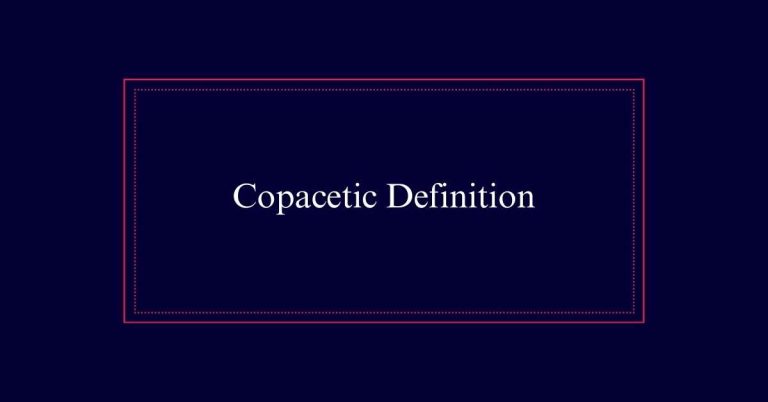Dreamed or Dreamt
Both ‘dreamed’ and ‘dreamt’ are correct past tense forms of ‘to dream’. ‘Dreamed’ is more common in American English, while ‘dreamt’ is frequently used in British English. Both words are interchangeable and grammatically correct, but the choice often hinges on regional preferences and stylistic considerations. ‘Dreamed’ generally conveys a modern tone, whereas ‘dreamt’ offers a poetic or old-fashioned flavor.
Understanding ‘To Dream’
Experiencing visions of thoughts during sleep defines the act of dreaming. However, dreaming is not confined to sleep. It can also occur while awake, encompassing envisioning events, hoping for something, or daydreaming.
Oscar Wilde once said, ‘A dreamer is one who can only find his way by moonlight.’ Dreaming often involves fantastical elements such as dragons, eagles, and lions, showcasing the mind’s creativity. It represents a form of mental exploration where the imagination runs free.
Dreams serve as a window into our subconscious, revealing our fears, desires, and aspirations. Whether in sleep or wakefulness, dreaming allows us to explore new possibilities and think beyond our immediate reality. It is an essential facet of human experience.
Past Tense Forms
Choosing between ‘dreamed’ and ‘dreamt’ as the past tense form of ‘to dream’ depends on various factors such as regional preferences, context, and stylistic considerations. In non-British English-speaking regions, ‘dreamed’ is more commonly used, while ‘dreamt’ is prevalent in British English.
Writers may choose ‘dreamed’ when referring to sleep or fantasy states, especially if duration is significant. Conversely, ‘dreamt’ is often used in contexts where duration is less relevant. Additionally, the choice can be influenced by the desired tone, rhythm, or emphasis in writing.
Dreamed’ Vs. ‘Dreamt
Understanding the nuances between ‘dreamed’ and ‘dreamt’ requires examining their usage, regional preferences, and contextual implications.
Both terms are past tense forms of ‘to dream,’ yet their use varies. Dreamed’ is more prevalent in American English, while ‘dreamt’ is commonly found in British English. Despite these regional preferences, both forms are correct and interchangeable. The choice often hinges on stylistic considerations.
Writers may opt for ‘dreamed’ when emphasizing duration or fantasy elements. Conversely, ‘dreamt’ may be chosen for its succinctness or poetic resonance.

Contextual Usage
In different contexts, the choice between ‘dreamed’ and ‘dreamt’ can greatly impact the tone and meaning of a sentence. ‘Dreamed’ is often used in American English and can convey a more straightforward or contemporary feel. On the other hand, ‘dreamt,’ more common in British English, can lend a poetic or old-fashioned nuance. Understanding the context in which each word is used helps in selecting the appropriate one.
| Context | Preferred Form |
|---|---|
| American English | Dreamed |
| British English | Dreamt |
| Formal Writing | Dreamed |
| Poetic Tone | Dreamt |
| Modern Usage | Dreamed |
Duration Considerations
While context often dictates the choice between ‘dreamed’ and ‘dreamt,’ the duration of the dream can also influence which form is more appropriate.
Writers often opt for ‘dreamed’ when referring to dreams that span a significant duration, whether during sleep or in a state of prolonged fantasy. This form suggests a more extended or ongoing experience.
Conversely, ‘dreamt’ may be preferred for dreams where duration is not a primary concern, perhaps indicating a fleeting or brief occurrence. Other factors, such as the rhythm of the sentence or stylistic preferences, can also impact the selection.
Regional Preferences
Regional preferences play a significant role in determining the use of ‘dreamed’ versus ‘dreamt’. These preferences shape how each form is utilized across different English-speaking regions.
- Non-British English: ‘Dreamed’ is more widely used in the United States, Canada, and Australia.
- British English: ‘Dreamt’ is commonly employed in the United Kingdom and Ireland.
- Cultural Influence: Regional norms and cultural practices influence word choice.
- Interchangeability: Both forms are accepted but may carry slight regional connotations.
- Personal Preference: Individual speakers often follow the dominant usage of their region.
British Vs. Non-British Usage
British and non-British English speakers exhibit distinct preferences for using ‘dreamt’ and ‘dreamed’. In British English, ‘dreamt’ is more frequently used, reflecting traditional language tendencies. This form has a poetic and archaic flavor, often preferred in literary contexts.
Conversely, in non-British English, particularly American English, ‘dreamed’ is more common. This variation aligns with broader linguistic trends in these regions, favoring simplicity and modern usage. Both forms are correct and understood globally, but regional norms dictate their prevalence.
Literary Examples
In literature, the choice between ‘dreamed’ and ‘dreamt’ often hinges on the desired tone and narrative style. Authors use these terms to convey different nuances and settings. For example, Ernest Hemingway’s concise prose might favor ‘dreamed’ to maintain clarity, while a more poetic narrative might opt for ‘dreamt’ to evoke a specific mood.
Tone: ‘Dreamt’ can add an archaic or whimsical feel.
Imagery: ‘Dreamed’ often feels more straightforward.
Character voice: A character’s background may influence word choice.
Setting: Historical or regional settings may dictate usage.
Narrative style: Poetic vs. straightforward prose impacts the choice.
Style and Emphasis
When considering style and emphasis, the choice between ‘dreamed’ and ‘dreamt’ can greatly impact the tone and rhythm of a sentence. ‘Dreamed’ often lends a smooth, flowing quality, making it suitable for narratives that require a softer touch.
Conversely, ‘dreamt’ has a sharper, more abrupt sound, adding a poetic or archaic feel. This distinction can influence the reader’s perception and emotional response.
For example, in a reflective context, ‘dreamed’ might evoke a serene, contemplative mood. On the other hand, ‘dreamt’ can add a sense of urgency or emphasis, often used in poetic or dramatic passages.
Personal Preferences
Many individuals have personal preferences when choosing between ‘dreamed’ and ‘dreamt’. These choices are often influenced by various factors, including regional usage and stylistic considerations. Personal preference plays a significant role in determining which form of the verb to use.
Here are some reasons why someone might favor one over the other:
- Cultural background: Regional dialects and norms.
- Aesthetic appeal: How the word sounds in a sentence.
- Literary style: Preference for a particular tone or rhythm.
- Consistency: Maintaining uniformity in written work.
- Tradition: Adherence to established usage in personal or professional writing.






